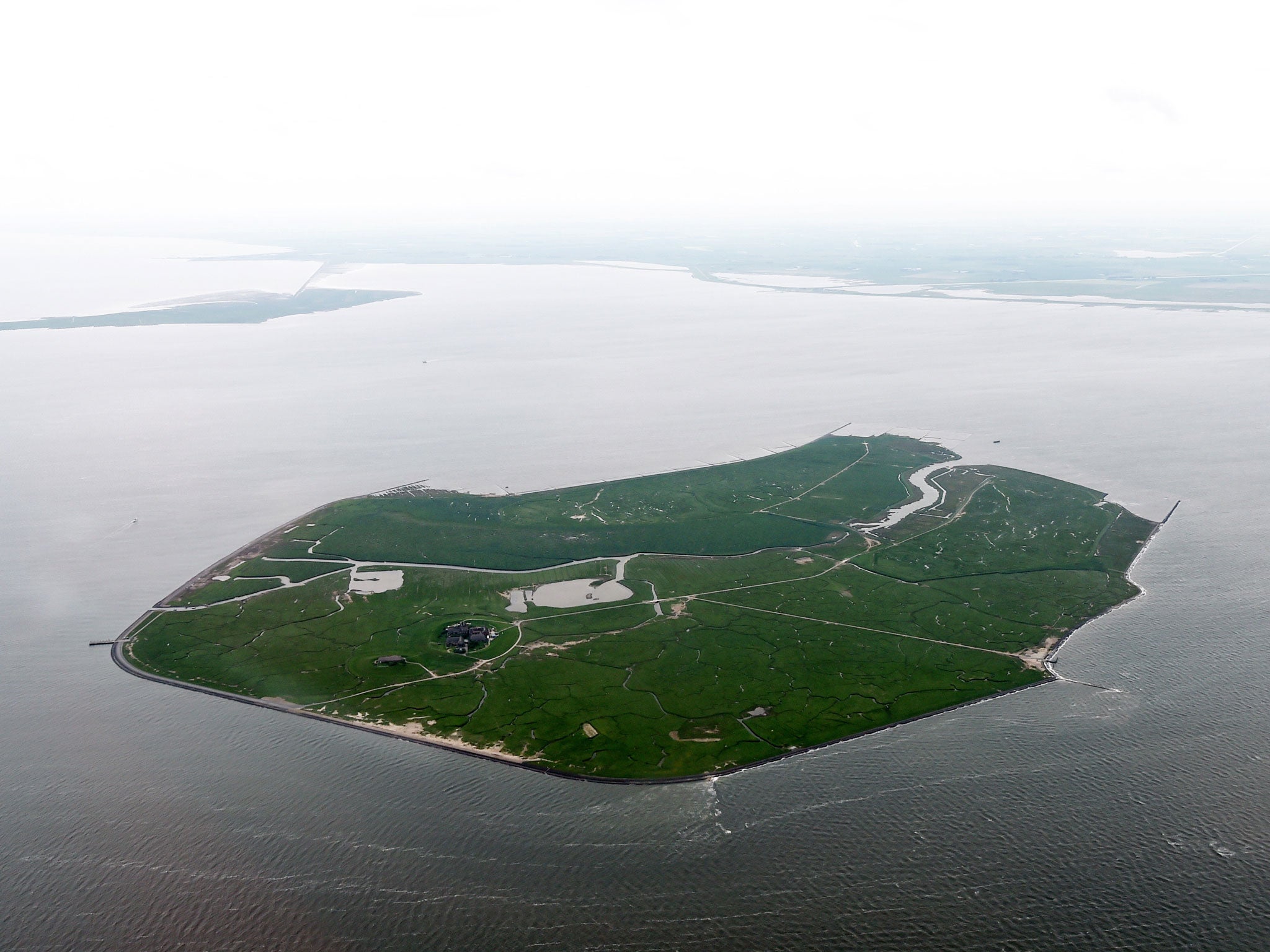The Naked Shore: Of The North Sea by Tom Blass, book review
Blass gives a captivating account of his travels around and across the North Sea, journeying by bus, boat, bicycle and train to the eclectic maritime borderlands of Britain, Belgium, the Netherlands and beyond

In the hessle road district of Hull, a red-brick, working-class suburb on the banks of the River Humber, stands a statue to a fisherman called William Leggett. His memorial commemorates a curious incident on the night of 21 October 1904, when one of Hull's largest fishing fleets was mistakenly attacked by the Russian Baltic Fleet's warships, which were steaming through the North Sea on their way to battle the Japanese navy for supremacy in the north Pacific, 18,000 miles away.
The nervous, trigger-happy Russians thought – astonishingly – that the Hull trawlers were Japanese ships lurking in ambush near Dogger Bank, and duly unleashed their big guns. In a hail of shellfire lasting 20 minutes, Leggett and another fisherman were decapitated, two others were wounded and a trawler, the Minto, was sunk before the bewildered crews of the remaining 45 boats could limp back to port.
The episode, now largely forgotten (other than among Hessle Road's long-depleted fishing community), almost led to war between Britain and Russia.
This is just one of the obscure, historical gems dredged up from the ocean floor in The Naked Shore – Tom Blass's captivating account of his travels around and across the North Sea, journeying by bus, boat, bicycle and train to the eclectic maritime borderlands of Britain, Belgium, the Netherlands and beyond.
"Other seas may be more photogenic, more televisual, their ports and harbours exotic and sensual," Blass argues, "but was it fair to permit the North Sea to become unfamiliar through being overfamiliar? What did I know previously of the courtship rituals of the island of Föhr, the tragedies inflicted upon Heligoland, the mysterious language of Norn, the genius of the Ostend painters, the trials and tribulations of the German Warft [artificial mound] dwellers, who each year confront the power of the Sturmflut [storm surge], or the boozy pleasures waiting behind the portals of the Nordern Lights Pub?"
Very occasionally, Blass's rich, evocative prose is let down by some tangled sentence construction and poor punctuation ("we had eaten ice creams and counted guillemots wearing T-shirts and sunglasses", for example) or misspellings missed by his proofreader ("an arms race between the smugglers and the revenue officers pursing them"). Despite these minor grumbles, however, The Naked Shore vividly describes some of the wildest, windswept corners of the North Sea and its remote coastal communities.
In one chapter, Blass transports us to the strange Halligen, or "half islands", of the Frisian archipelago where, "unlike islands proper, the Halligen have no rocky core but are merely the remnants of old polders, the rest of which were washed away by the Great Mandrenke ["Great Drowning of Men"] of 1362, which killed 6,000 people".
Here, the ebbs and flows of cross-cultural coastal life are evident from the five local languages spoken: Hochdeutsch (High German), Plattdeutsch (Low German), Frisian (in numerous dialects), Danish and Jutish (derided by speakers of the four other languages as "Potato Danish"). The Half-Islanders, Blass observes, flip between languages according to the situation and with no exception for animals. Thus, a man "who has bought a horse from a Plattdeutsch speaker might talk to it in Plattdeutsch, but speak Frisian to his cows (which is natural) and use Hochdeutsch – the natural tongue for the giving and receiving of commands – with his dog".
Part travelogue, part history book and part anthropological study, Blass's intensely rewarding memoir succeeds in scattering some light into the North Sea's cold and murky depths, revealing both its wonders and its indivisible relationship with humanity.
Bloomsbury, £20. Order at £18 including P&P from The Independent Bookshop
Join our commenting forum
Join thought-provoking conversations, follow other Independent readers and see their replies
Comments